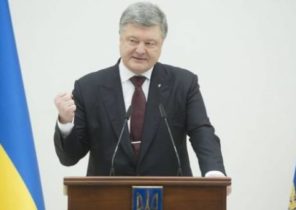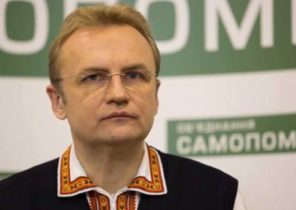
“The government of ordinary people.” So in the currently fashionable spirit, calls himself the new Cabinet of Ministers of Estonia, who formed the Centrist party. Ten years in opposition, she gathered under its banner all who are resentful of the state, including those of Estonian citizens whose native language is Russian. The coalition, consisting of two center-left (centrists and social Democrats) and one right-wing party (Union of Fatherland and Res Publica), plans to costly social events and public investment programs. Means they hope to obtain, in particular, due to the territorial reform, which will be completed this year and will make the state more effective and cheaper.
However, the time to implement their ideas in the center a little: in March 2019 in Estonia will take place new parliamentary elections. Will it be possible to keep the trust of their constituents and partners, and will prevent whether the orientation towards a balanced distribution of growth right populist sentiment and influence of the Kremlin? Correspondent Radio Liberty found out that thinking about it in Tallinn.
Jeanne is a former Russian citizen, a citizen of Estonia, married an Estonian. Works in the newspaper ads:
— I was always on the side of the centrists, I liked what they offered and did, so I was happy for them. I hope that things will change for the better. I wish Russian school was to gain knowledge in their native language is definitely better. But would like to see Estonian language in Russian schools much more effective than taught, so the boys came out with a very good knowledge. I wish my countrymen and those who have “gray passports,” adopted in citizens, feel sorry for those people who were born here but do not have citizenship. I think it’s unfair.
— Do you think that the new government will really be able to do it?
— I think that they can not afford, but the desire is already a plus.
— It is difficult to obtain Estonian citizenship?
I got it as soon as got here 15 years ago from St. Petersburg. Thought that since I came here, so I have. It to me so nobody will. I moved here to my husband, he too had had Estonian citizenship, we both went and passed the exam.
— It was a “grey passport”?
— Russian passport. Within six months we were given permission to receive Estonian citizenship, respectively, the child has already received citizenship in the us.
You for six months and have learned Estonian?
— Yes, I went on courses, then four months they lasted, and of the knowledge that I was given, enough. Since then it has become more difficult to pass. The requirements above.
— How many of your friends-Estonians supporters of the Centrist parties and the new government?
— Among our friends Estonians, who were earlier supporters of the reform Party, this time many voted against. Have faith in the fact that this party is something can do for people. Life became harder social grants, which were available earlier was withdrawn. Some of our friends were still in the reformists, but of the common people, middle class people were rather unhappy. My husband is also Estonian, and seeing what was happening in the government, he was very unhappy. In General, Estonians and non-Estonians in political terms, a very cool different, Estonians mostly still for the reformists. But economically, socially, this party pumped up, and the people have lost faith in themselves.
— Think relations with Russia thanks to the centrists will improve?
— I don’t think. I would like to improve, but at least from the centrist I have not yet heard strong statements in favor of improving political relations.
The Deputy of the Tallinn city Assembly from the Centrist party, adviser to the Prime Minister jüri Ratas of Natalia Malleus tells how the new authorities are going to fulfill the promises given to voters.
— According to the coalition agreement it was decided that the right to choose the language of instruction will be given to some schools in Tallinn and one school in the County IDA-Virumaa, in the northeast, most likely in Narva. Likely three schools. The school can choose the proportion: 90 per cent of courses in Russian language, 10 per cent in Estonian. In the primary school education is in Russian language. The proportion of 40: 60 for gymnasium training, it is the last three years. A good example of Tallinn regarding the construction of municipal housing and free public transport was contagious for the current coalition, and the partners agreed about the transport network which will cover the entire country, and the construction of public housing. Political orientation is different, but the social platform they were together.
— The party EKRE, which previously was not in Parliament, this time there was. Is it not a threat to the current ruling bloc, the growth of right-wing populism?
Something that this party entered Parliament, is an indication that ideas EKRE popular in society. The popularity she gained on the background of the migration crisis in Europe. There is a certain fear, when you look at our immediate neighbors to the North, there is an understanding that the powerful wave of migration could be destabilizing. There are people, for example, the group “Warriors of Odin”, which United around the idea to counter migration. I don’t think that if the policy of the European Union will remain the same, such party’s radical wing will disappear from the horizon of Estonian politics.
Member of the Estonian Parliament Riigikogu Denis Borodich was one of the few Russian-speaking representatives of the reform Party. Three years ago Borodich was a member of the centrist faction. To change party affiliation it made the disappointment in the ideals of social justice and dislike of the former President.
— The role of the state in economic development and in other areas, I believe, should be minimal. But the management style was unacceptable to me: the authoritarian style, where it presents only one opinion. We are one of the first to attempt to change the situation in the party in 2011, when jüri Ratas first ran for the post of Chairman, while not enough 9%.
— Will the centrists to defend the rights of their constituents?
— A high-ranking centrists in order to win the votes of Russian-speaking, said: we stand for the abolition of sanctions against Russia. When we started the coalition negotiations, they said, we the principles and tenets of foreign policy will not change. He also said that will solve the issue with education in the public schools. As far as I know, we are talking about a certain experiment in two cities in Estonia. Before the election it was promised that the centre party will set the minimum wage at 1,000 euros. I read several times the coalition agreement, where such promises are not saw. If we look at the composition of the new government, he has one common denominator — it is not an ideology, not a personal relationship, and the desire to submit in opposition to the reform Party. For some time it brings, but the ideological differences will sooner or later make themselves felt. The coalition is right-wing party “Union of Fatherland and Res Publica”. The refusal from the reduction of labor taxes, social security tax will be increased by percent in two years, a departure from the values of the past government — let’s see how they explain this to their constituents.
— Will there be any developments in relation to stateless persons?
— While in opposition, the centrists promised it would be resolved the issue with non-citizens. In the coalition agreement about it not a word. I think it will be great dissatisfaction on the part of voters and will come disappointment. No wonder for several articles was that a certain initiative group plans to create a Russian party. A Holy place is never empty. If there are unhappy, someone will try their voices to collect. I do not believe that the issue of persons without citizenship will be solved.
— How much you give time a new coalition?
— Estonia this year will preside in the European Union, at this moment no one rock the boat will not. As all the party leaders this time will be in Brussels, no one will engage in intrigue and backroom games. Unless, of course, do not fall apart. From our side it would be incorrect to do. This year we have municipal elections have something to do. And the end of this year and beginning of next will give the preconditions for any changes. From the point of view of democracy, things are good: the more mathematical options to form a coalition, the better.
— Is it possible to joint the government of centrists and reformists?
— Today, barriers to work no, but we would not have gone in their government. Although we do not exclude partnerships, especially since the coalition of the two parties much easier to manage than the triodities. Today, a lot depends on how she will be a single Centrist party.
— Do you see a threat to Estonian democracy from radical parties? For example, EKRE?
Today the preconditions for the emergence of such a party was. But at the peak of the problems of refugees, its rating was two times higher. Now he again begins to fall. Still, the Estonian people are not radical. Anxious mood is short-lived. And if you have the basic idea — only the radicalism of this short-term project.
— Russia is trying to influence directly on the members of Parliament?
— Judging by the actions of the MP Yana Toom, cooperation can be seen directly: the visit to Syria with Mr Kosachev in the Russian delegation. In the influence on the new leadership of the Centrist party, I do not believe. It is unlikely that these people are associated with the “hairy hand of the Kremlin”. Jüri Ratas, even in Russia was not.
The political scientist Johan of kivirahk does not consider the party of the Prime Minister solely based on Russian language:
— It is true that most Russian voters support the Centrist party. But it is not true that the majority of voters-centrists — is Russian. Among Estonians, they have 20 percent support, and the Russian share in the number of voters is small. They labeled as the “Russian party”, so still the rest of the party ignored them, but that all changed when the centrists elected a new Chairman, jüri Ratas of, mainly because all right-wing parties declared that Edgar Savisaar they have no cooperation will not. Ratas has not announced the change of policy, and had his party the agreement with “United Russia” (in General, it is not a Treaty, and the Protocol of cooperation), they are not annulled. But the first thing the new government has declared that it will continue the same foreign and defense policy, which Estonia supported so far. Although the world press with, of course, their opponents began to say that this is the left and Pro-Russian turn. But the reasons are different: the reform Party, which led the government for 17 years, was too confident to feel and ignoring their partners. And of course, the impact of the presidential election last summer, when the reformists were unable to find a common candidate.
Reformists Russian voter sees as the main culprits in the so-called “Bronze night”, and it has really affected the credibility of all state institutions among the Russian inhabitants of Estonia. This confidence has still not recovered. All social groups, who felt that the state comes with them unjustly — the poor, pensioners and the Russian-speaking population, began to support the centrists. If among the Russian electorate, 80 percent support of the centrists, for example, among people of retirement age — more than 40 percent. Centrists — not a single party, there is a wing Savisaar, will be the local elections, and still knows how to act Savisaar. Some group plans to create a Russian party. In local elections, which are open and non-citizens, Russian citizens, it can also affect the political situation.
— Russian voters in Estonia is certainly left?
— We have among the parties are like two leagues. In the first League — the party with the continued support of over 20%, it’s the centrists and the reform Party. And the reformists and centrists used the so-called “Russian card”, just in different ways. In principle, our party does not emanate from his ideological position, but rather from the fact that the voice brings. In our studies, it turned out such an anomaly that after the “Bronze night” Estonians with the lowest income, despite this, supported the reform Party, openly carried out a policy which is more useful to the propertied strata. Now moved EKRE — national-conservative party. Of course, its rise is not so much a problem of the country, as the consequence of the problems caused by globalization. A specific person is easier to look backwards rather than forwards. Brickset happened because the British thought to the European Union, the UK fared better. And such an ideology may soon represent our conservatives, — said the Estonian political scientist Johan of kivirahk.







